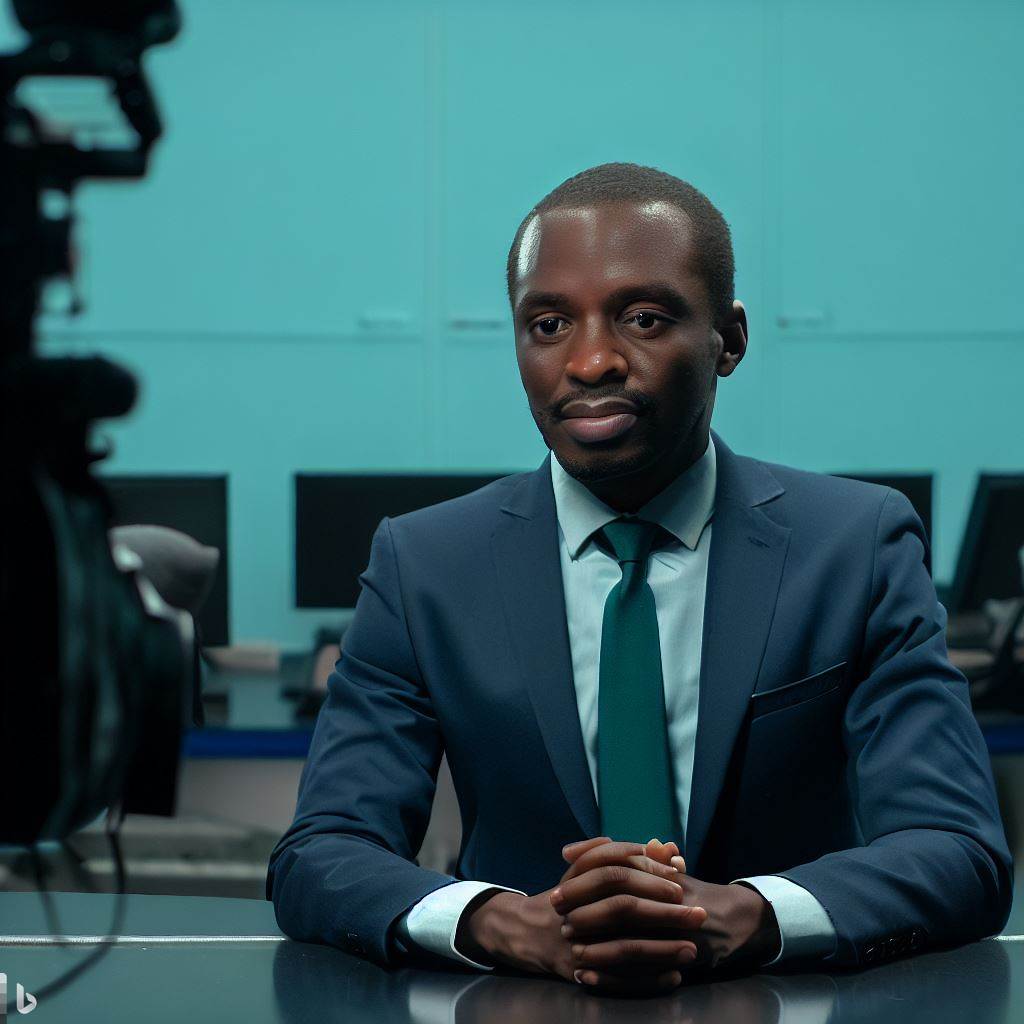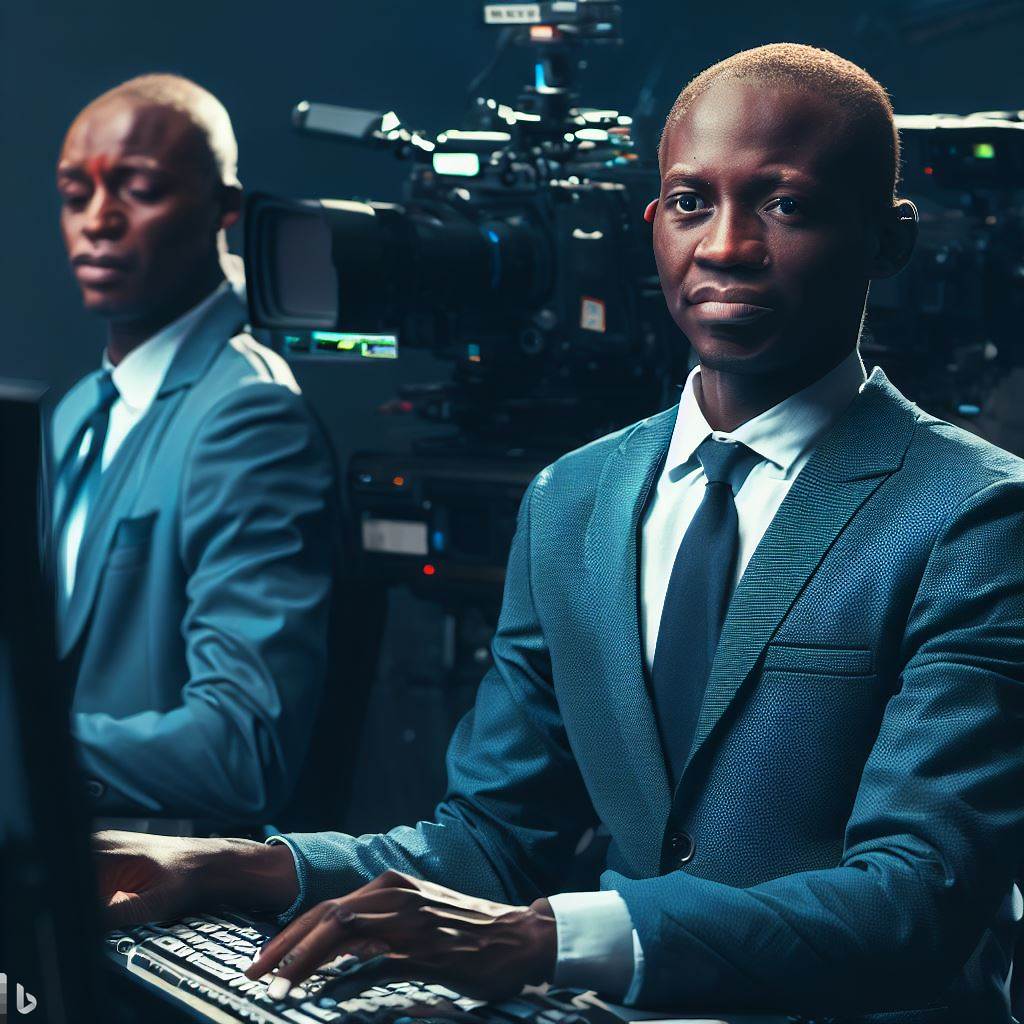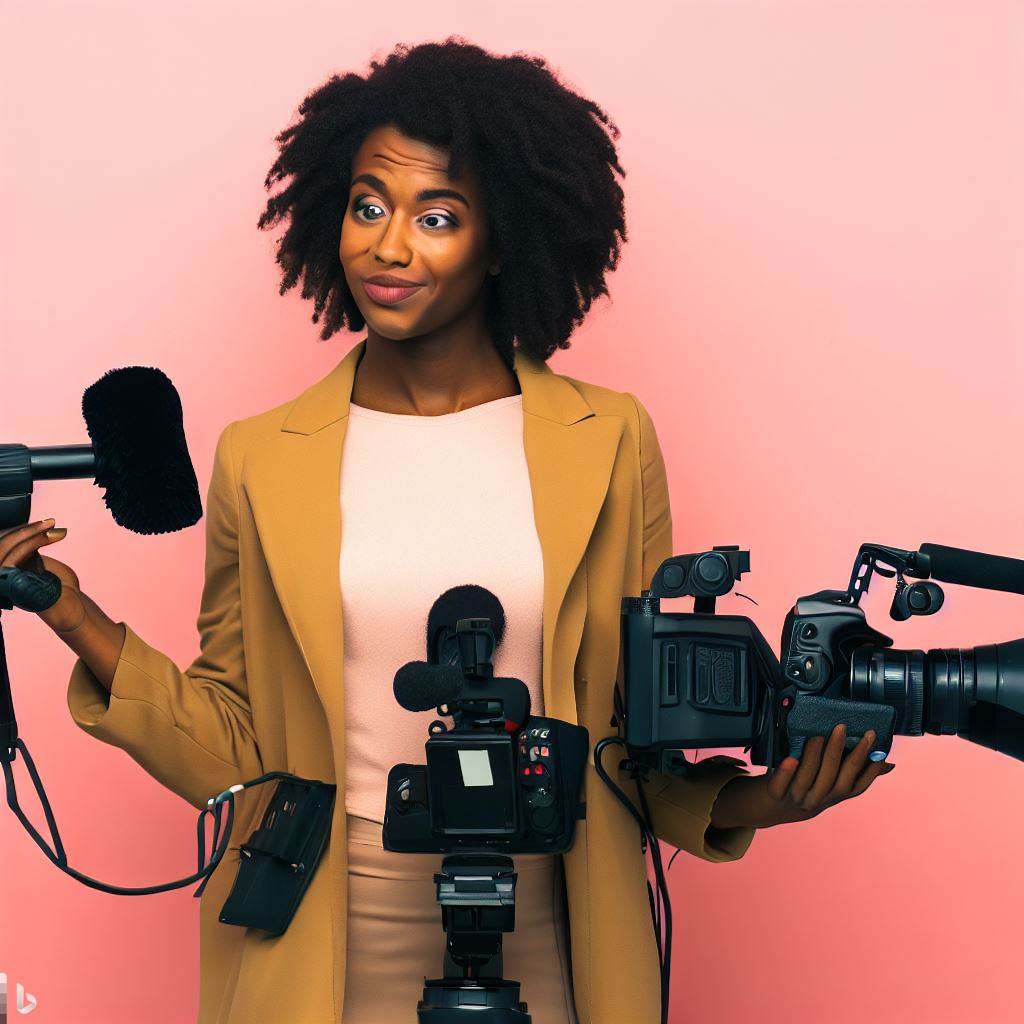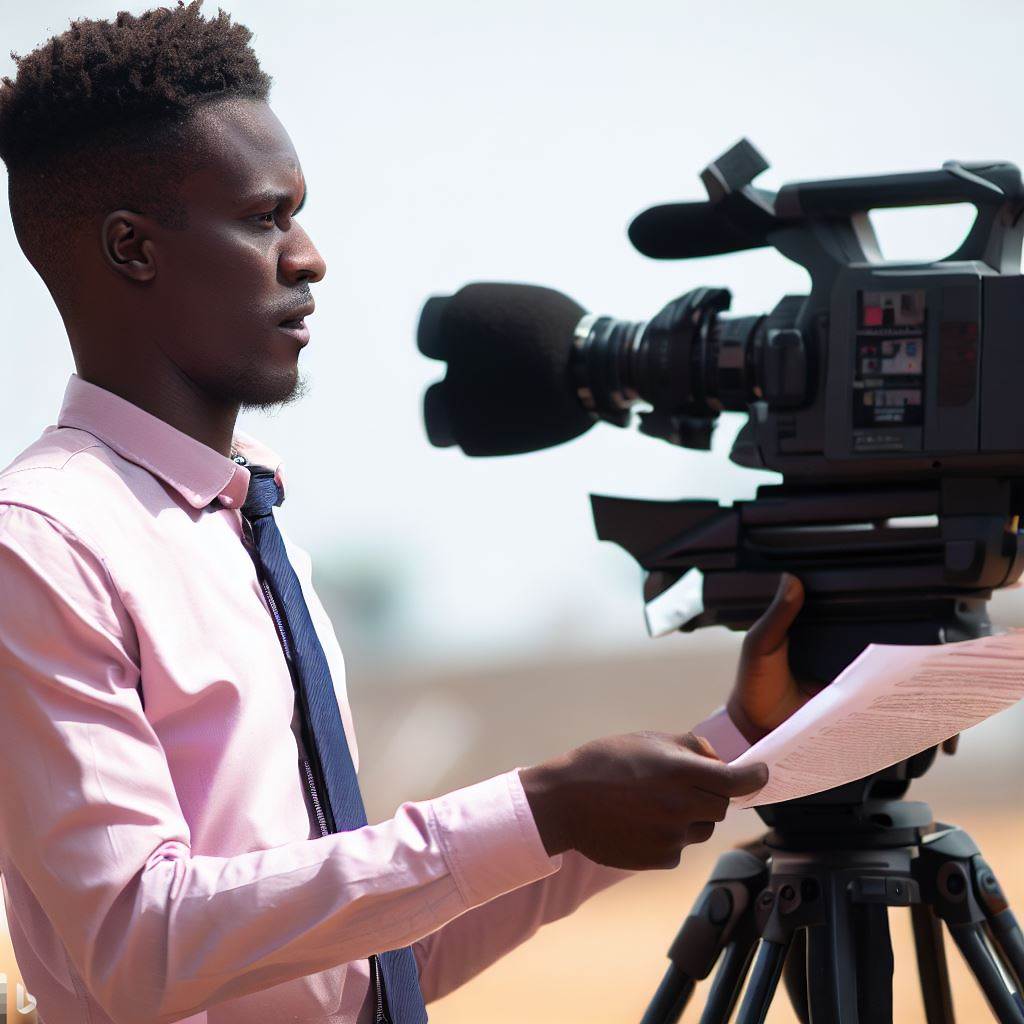Introduction
Storytelling, a powerful tool in shaping society, has the ability to influence and inspire. Nigerian TV editors, as experienced professionals, hold the key to impactful storytelling.
This blog post explores the significant role Nigerian TV editors play in shaping narratives through storytelling.
Television editors in Nigeria are instrumental in shaping the narratives portrayed in television shows and programs.
Their expertise lies in carefully selecting, arranging, and enhancing the visual and audio elements of a story.
By employing their creative vision, TV editors enhance the overall impact of storytelling.
They have the ability to build suspense, evoke emotions, and present narratives in engaging and captivating ways.
Their role extends beyond mere technicalities, as TV editors are also responsible for ensuring the accuracy and authenticity of the content.
They carefully review and fact-check the information presented in programs to uphold journalistic standards and provide a reliable source of information.
Nigerian TV editors have a significant influence on the societal and cultural perspectives presented in television programs.
They have the power to shape public opinion and challenge societal norms through the narratives they choose to celebrate or criticize.
TV editors play a crucial role in amplifying the voices of marginalized communities and promoting inclusivity.
By featuring diverse characters and storylines, they contribute to a more representative and inclusive media landscape.
Basically, Nigerian TV editors hold a significant position in storytelling.
Through their creative skills and responsible decision-making, they have the power to shape society, promote inclusivity, and challenge existing narratives.
Their role is pivotal in ensuring that television programs provide meaningful and impactful content to their audience.
The TV editing process
Definition and importance of TV editing
TV editing is the art of assembling footage, enhancing the visual elements, and creating a cohesive story.
It plays a crucial role in television production by bringing together all the different components of a show, such as music, sound effects, and dialogue.
Overview of the TV editing workflow
The TV editing process typically consists of several steps that ensure a well-structured and engaging final product.
Firstly, the editor receives raw footage from various sources, including cameras and audio recordings.
Then, they meticulously review the material to select the best shots and audio clips.
After this selection process, the editor starts assembling the footage in a logical sequence. They organize the shots, trim unnecessary parts, and create smooth transitions between scenes.
This step is crucial in maintaining the flow and pacing of the story. Next, the editor focuses on enhancing the visual elements.
They adjust color, brightness, and contrast to ensure consistency throughout the footage.
In addition, they may add visual effects, titles, and graphics to enhance the storytelling.
Tools and techniques used by Nigerian TV editors
Nigerian TV editors employ various tools and techniques to enhance their editing process.
They utilize professional editing software such as Adobe Premiere Pro, Final Cut Pro, or Avid Media Composer.
These programs offer a wide range of features that allow editors to manipulate footage, add effects, and create seamless transitions.
Additionally, Nigerian TV editors rely on their creativity to make critical decisions during the editing process.
They carefully choose the best shots from the available footage to create an engaging narrative.
They use their understanding of storytelling principles, such as the three-act structure, to create a compelling story flow.
How the editing process enhances storytelling
The editing process significantly enhances storytelling in Nigerian television programs.
By selecting the most impactful shots and trimming unnecessary content, TV editors ensure that the story remains focused and captivating.
They can create a sense of tension, build suspense, or evoke emotions through the pacing and sequencing of shots.
Moreover, TV editors play a crucial role in maintaining continuity and coherence within the narrative.
They can seamlessly connect different scenes, harmonize visual and audio elements, and ensure a smooth transition between different perspectives.
Their attention to detail and ability to create a cohesive story enhances the audience’s viewing experience.
Furthermore, the editing process allows for the enhancement of visual storytelling.
Through color correction, visual effects, and graphics, TV editors can create a unique atmosphere, evoke specific emotions, and emphasize key moments in the story.
These visual enhancements contribute to a more immersive and impactful storytelling experience.
Generally, TV editing is a vital component in the storytelling process in Nigerian television.
Through the careful selection, arrangement, and enhancement of footage, TV editors bring together all the elements of a show to create a compelling narrative.
With their proficiency in editing tools and techniques, they have the power to elevate storytelling and captivate audiences.
Read: Education Requirements for TV Reporters in Nigeria
Nigerian TV Editors as Storytellers
In the world of Nigerian television, editors are the unsung heroes of storytelling.
Their role goes beyond mere technical prowess; they are true narrative architects.
Selecting and Organizing Visual Content
- TV editors wield immense influence by cherry-picking pertinent footage.
- They craft seamless narratives, strategically sequencing and transitioning shots.
Manipulating Pacing and Rhythm
- Editors are conductors of tension and suspense, sculpting gripping stories.
- They amplify emotional resonance, tugging at viewers’ heartstrings.
Applying Audiovisual Effects for Storytelling Purposes
- Editors harness soundscapes and music to evoke powerful emotions.
- They employ visual wizardry through effects and color grading for immersive storytelling.
Selecting and Organizing Visual Content
In their arsenal, editors wield the power to select and arrange visual elements with precision.
They meticulously choose the most relevant footage, ensuring every frame advances the narrative.
With expert finesse, they arrange shots, seamlessly weaving them together. This selection and organization elevate storytelling to an art form.
Manipulating Pacing and Rhythm
Editors are conductors of pacing and rhythm in television narratives.
They control the ebb and flow of a story, building tension and suspense to captivate audiences.
With deft edits, they intensify emotional impact, making viewers laugh, cry, or hold their breath in anticipation.
Applying Audiovisual Effects for Storytelling Purposes
Sound and visuals are their palette. Editors incorporate sound effects and music to create emotional soundscapes, amplifying the narrative’s depth.
Visual effects and color grading are their secret weapons, shaping the story’s mood and atmosphere.
In essence, Nigerian TV editors are storytellers in their own right.
They craft narratives that resonate deeply with the audience’s hearts, making every scene a stroke in the canvas of compelling storytelling.
Read: A Day in the Life of a Nigerian Television Reporter
The influence of TV editors on narrative structure
A strong narrative structure is crucial for any television show as it helps in capturing the audience’s attention and keeping them engaged throughout.
TV editors play a significant role in shaping the narrative structure of a show through various means.
Collaborating with writers and directors
TV editors work closely with writers and directors to bring a story to life. They collaborate in the initial stages to understand the vision and goals of the show.
By actively participating in the creative process, editors ensure that the narrative structure aligns with the intended storyline.
They provide valuable input on how to build suspense, create tension, and maintain a coherent flow of events.
Working together, editors, writers, and directors can craft a compelling narrative structure that captures and holds the audience’s attention.
Shaping the plot and character development
TV editors have the power to shape the plot and character development through their editing choices.
They carefully select and arrange scenes, emphasizing key moments and downplaying others, to create a cohesive and engaging storyline.
Editors can establish the pacing of a show, deciding how fast or slow the story unfolds.
By manipulating the timing and sequencing of scenes, they can build suspense, evoke emotions, and surprise the audience, enhancing the overall impact of the narrative.
Enhancing audience engagement and immersion
TV editors play a vital role in enhancing audience engagement and immersion.
They ensure that the storytelling is seamless and captivating by focusing on continuity, rhythm, and visual aesthetics.
Editors carefully consider the placement of commercial breaks and cliffhangers to maintain suspense and keep the audience hooked.
They also oversee the integration of visual effects and sound design, creating a more immersive experience for viewers.
Balancing entertainment, education, and social impact
TV editors have the responsibility of striking a balance between entertainment, education, and social impact in their storytelling.
They must ensure that the narrative structure effectively conveys the intended message while keeping the audience entertained.
Editors can use their skills to highlight social issues and raise awareness through impactful storytelling.
They can also incorporate educational elements into the narrative structure, making the show informative and thought-provoking.
By carefully balancing these elements, TV editors have the power to influence viewers’ perspectives and inspire positive change.
In short, TV editors play a crucial role in shaping the narrative structure of television shows.
Through collaboration with writers and directors, they ensure that the vision of the show is effectively translated into a compelling storyline.
By shaping the plot and character development, editors engage and immerse the audience in the story.
They also balance entertainment, education, and social impact to create a well-rounded viewing experience.
The influence of TV editors on narrative structure cannot be underestimated, as they are key contributors to the success of any television show.
Read: The Future of Television Production in Nigeria: An Outlook
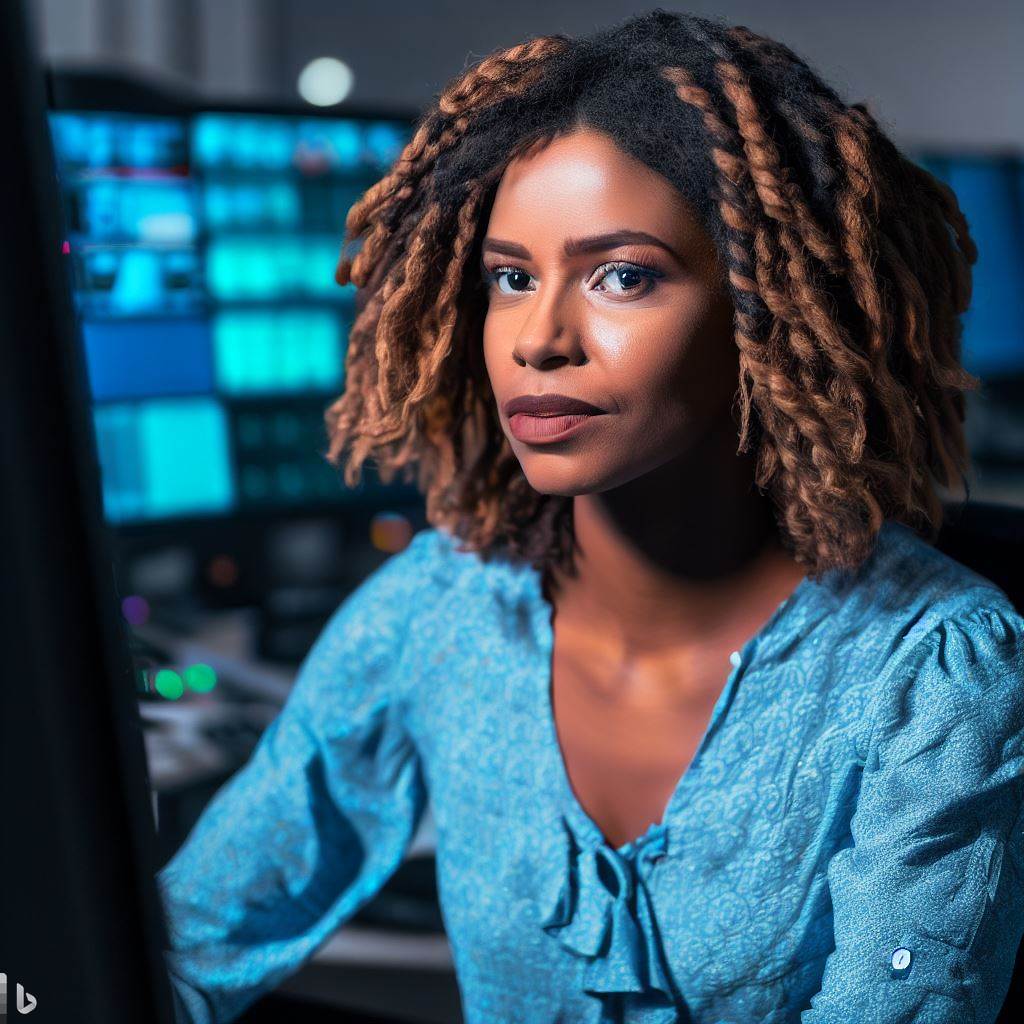
Case studies: Noteworthy TV shows and their editors
In this section, we will explore three noteworthy Nigerian TV shows and their respective editors, analyzing the impact of their editing techniques on storytelling.
“The Village Square” and its editor’s storytelling approach
- The TV show “The Village Square” is known for its captivating stories that reflect the lives of rural Nigerians.
- The editor of this show employs a unique storytelling approach, emphasizing the characters’ emotions to immerse the viewers into the narrative.
- Through precise and deliberate editing choices, the editor effectively conveys the struggles, joys, and conflicts faced by the characters.
- The use of close-ups and reaction shots in editing helps the viewers empathize with the characters and understand their motivations.
- The editor’s command of pacing and rhythm creates a sense of suspense and anticipation, keeping the audience hooked to the storylines.
“Inheritance” and the contribution of the TV editor
- “Inheritance” is a popular TV show that explores the intricacies of family dynamics and inheritance battles.
- The TV editor of “Inheritance” plays a crucial role in maintaining the show’s gripping narrative by skillfully manipulating the pacing of each episode.
- The editor strategically inserts flashbacks and montages to deepen the viewers’ understanding of the characters’ past and motivations.
- By seamlessly blending present and past events through editing techniques, the editor enhances the audience’s emotional connection with the story.
- Moreover, the editor’s attention to detail helps to emphasize key moments, making the show more impactful and memorable for the viewers.
“State of the Nation” and the impact of editing on storytelling
- “State of the Nation” is a highly acclaimed TV show that focuses on societal issues and political landscapes in Nigeria.
- The TV editor’s role in this show is to make complex information accessible to a wide range of viewers through effective storytelling techniques.
- The editor carefully selects and arranges footage to create a coherent narrative that sheds light on the intricacies of Nigerian politics.
- Through precise editing, the editor highlights significant events, ensuring they are presented in a way that engages and informs the audience.
- The use of visual effects and transitions also aids in clarifying complex concepts, allowing the viewers to grasp the show’s message more easily.
In general, these three case studies exemplify the crucial role that Nigerian TV editors play in shaping the storytelling process.
Through their expertise in editing techniques, they enhance the emotional impact of the narratives, maintain the viewers’ engagement, and facilitate the communication of complex ideas.
The village Square, Inheritance, and State of the Nation all demonstrate the powerful contribution of TV editors to the success and effectiveness of storytelling in Nigerian television.
Read: Influential TV Producers: Shaping Nigeria’s Television Scene
The ethical considerations of storytelling through TV editing
Maintaining journalistic integrity and truthfulness
TV editors in Nigeria have a crucial role to play in maintaining the ethical standards of storytelling.
Publish Your Professional Profile, Business or Brand
Showcase your expertise, gain trust, and boost visibility instantly on Professions.ng.
Publish NowAs guardians of truth and transparency, they must ensure that the stories they edit accurately reflect the facts and reality of the situation.
Journalistic integrity is paramount, and any manipulation or distortion of information can have severe consequences.
Balancing storytelling techniques with accuracy and fairness
While TV editing allows for creative storytelling techniques, editors need to strike a delicate balance between engaging narratives and being truthful.
They must use their technical skills to enhance the storytelling without compromising the accuracy and fairness of the content.
This requires a keen understanding of the story’s context and the audience’s expectations.
The responsibility of Nigerian TV editors in shaping public opinion
TV editors wield significant influence over public opinion through the stories they choose to highlight or omit.
As gatekeepers of information, they must exercise their responsibility with care and uphold the principles of objectivity.
By presenting a diverse range of perspectives on important issues, they contribute to a well-informed citizenry capable of making informed decisions.
Ethical considerations in TV editing are crucial for maintaining the trust of the audience and the credibility of the industry.
Nigerian TV editors must adhere to the highest standards of professionalism and ethical conduct in their storytelling endeavours.
Conclusion
Recap of the role of Nigerian TV editors in storytelling
Nigerian TV editors play a crucial role in crafting and shaping narratives for television shows.
They are responsible for selecting, arranging, and enhancing visual and audio elements to create engaging stories that captivate viewers.
The importance of recognizing and appreciating their contributions
It is vital to acknowledge the significant contributions of Nigerian TV editors in storytelling.
Their expertise and creativity bring life to the narratives and elevate the overall quality of television programming in the country.
Their skills should be recognized and appreciated.
Final thoughts on the future of Nigerian TV editing and storytelling
The future of Nigerian TV editing and storytelling looks promising.
As technology advances and more platforms emerge, there will be increased opportunities for TV editors to showcase their talents.
It is essential for the industry to embrace innovation and upskill to stay relevant in the ever-evolving media landscape.
In a nutshell, the role of Nigerian TV editors in storytelling cannot be overstated.
They are unsung heroes who work tirelessly behind the scenes to craft compelling narratives that entertain and educate viewers.
Recognizing and appreciating their contributions is necessary to sustain and grow the storytelling industry in Nigeria.
With a commitment to improvement and adaptation, Nigerian TV editing and storytelling have a bright future ahead.

